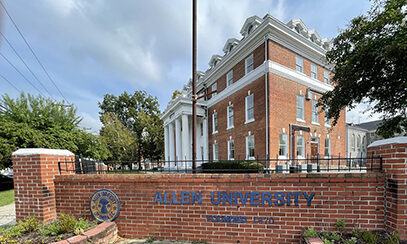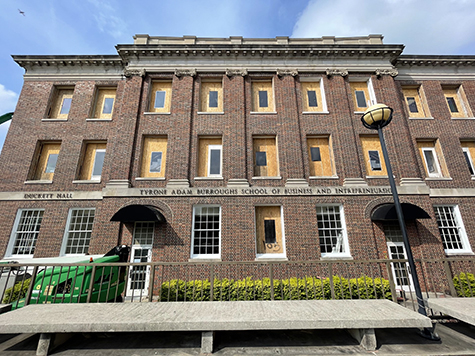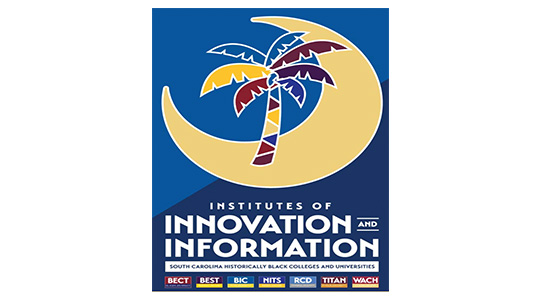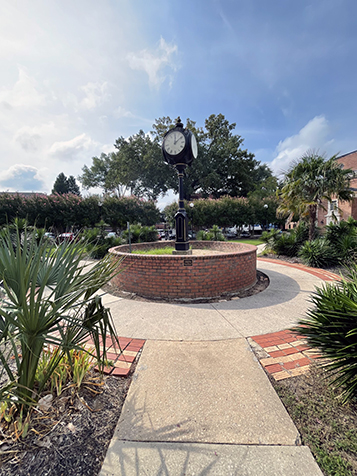The Boeing Institute of Civility at Allen University prepares students to identify civil solutions to real-world problems. (Photo by Langston Brooks/Carolina News and Reporter)
The late state Sen. John L. Scott Jr. of Richland County passed away earlier this August, but his legacy lasts in more ways than one.
The late senator, first elected to the House in 1990, advocacted for higher education and healthcare development for under-resourced communities.
The South Carolina Institutes of Innovation and Information is a non-profit inspired by Scott’s vision to supplement the state’s seven Historically Black Colleges and Universities by providing funding, resources and networking opportunities.
“You think that you’re the special one because he took time to talk to people, took time to guide you,” said Dr. Gwynth Nelson, executive director of the Institutes.
The S.C. General Assembly in 2021, with a push from Scott, appropriated $18 million for educational advancements at HBCUs, with each university having a specific focus for expanding opportunities for not only the school but surrounding communities.
The schools are focusing on initiatives such as business, science, nursing and technology.
“The focus is that each university and college has an institute,” Nelson said. “And the institute has a special niche.”
Benedict College focuses on business, entrepreneurship, science and technology, while Allen University focuses on community civility.
“The goal is to assist students with internships, scholarships, and then helping them to become career-ready after graduation,” Nelson said.
Nelson said a highlight of the program so far was a summit this month on business, environment, communications and transportation, held at South Carolina State University.
The summit featured representatives from the state Department of Transportation helping students polish their resumes along with information about internships and careers.
Nelson and Scott began developing the idea for the non-profit more than six years ago at Voorhees University.
“(Scott) cared so much about the future of not only HBCUs in South Carolina but the future of education overall in South Carolina that I could not say ‘no,’” Nelson said.
Their hard work already has paid off, with the state’s HBCUs producing students such as Rasheem Neloms Jr. at Benedict College.
The North Charleston sophomore wants to focus on digital marketing for black-owned businesses after graduation, saying Benedict so far has helped him achieve all his goals along the way.
“We have all Apple products, a recording studio as well as cameras and equipment from photography,” Neloms said. “All of our equipment is state of the art and kept up to date.”
Benedict, with the program’s assistance, also helps students like Neloms network with employers.
“The business school provides events and internship opportunities with companies like Palmers or the Charlotte Hornets,” Neloms said.“There’s always a new internship out there, so the resources are there for us students to grow individually.”
Looking forward, Nelson says the non-profit hopes to expand its reach and influence to other schools, building upon the its foundation.
North Carolina A&T University has reached out to the non-profit for information on how to adopt a similar plan for its university funding.
“(Scott’s) vision was to – and I am carrying the torch – to not only ‘make it’ nationally but globally.”
Benedict College’s teaching focus is business, entrepreneurship, science and technology. (Photo by Langston Brooks/Carolina News and Reporter)
Institutes for Innovation and Information helps support the budgets of the state’s seven HBCUs, providing resources and development funding. (Photo courtesy of South Carolina Institutes of Innovation and Information/Carolina News an Reporter)
Founded in 1870, Benedict College is a private university that has more than 1,700 enrolled students. (Photo by Langston Brooks/Carolina News an Reporter)





